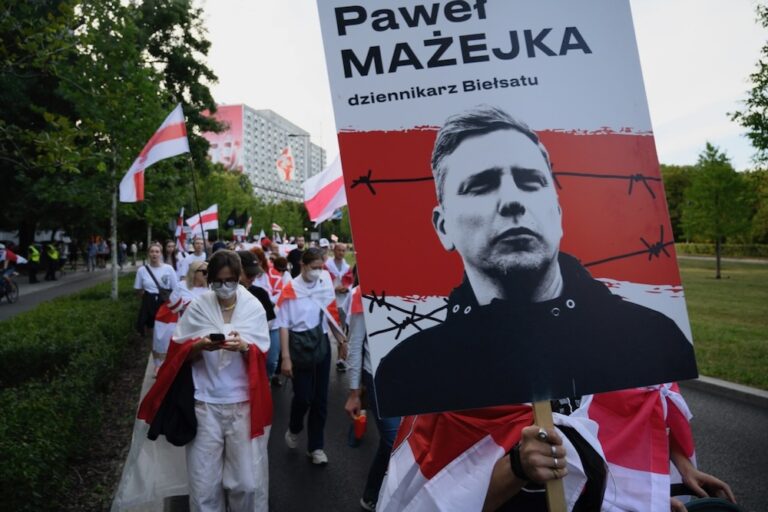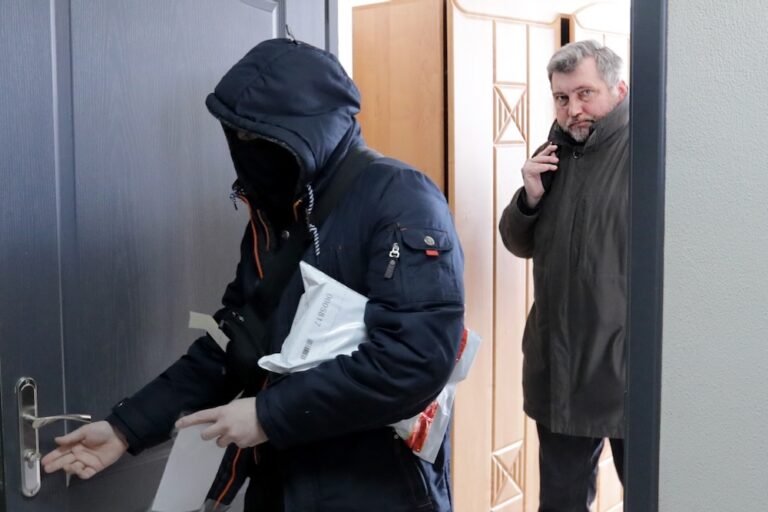(ARTICLE 19/IFEX) – The following is an ARTICLE 19 press release: Belarus: New Report Sets Out Obstacles to Free and Fair Elections Today ARTICLE 19 is launching The Mechanics of Repression: Obstacles to Free and Fair Elections, a report which documents the deterioration in respect for freedom of expression in Belarus. The report examines the […]
(ARTICLE 19/IFEX) – The following is an ARTICLE 19 press release:
Belarus: New Report Sets Out Obstacles to Free and Fair Elections
Today ARTICLE 19 is launching The Mechanics of Repression: Obstacles to Free and Fair Elections, a report which documents the deterioration in respect for freedom of expression in Belarus. The report examines the prospects for a level playing field in the forthcoming Presidential elections, to be held on 9 September 2001, using the conduct of October 2000’s Parliamentary elections as a basis for reference.
Since Alexander Lukashenka came to power in 1994, his government has waged an active campaign against all sectors of civil society, with the goal of crushing dissent. While the methods the government employs inevitably affect a wide cross-section of society, the non-state media has been a particular focus of attention. The state has introduced a barrage of laws and promulgated draft legislation calculated to stifle free expression including Decrees, Laws and Regulations. These are used as the basis for prosecutions and warnings which interfere with the workings of non-state media and civil society organizations.
A series of unexplained ‘disappearances’ of high-profile personalities has made it clear that being important or popular is no bar to extra-legal sanction. A further chilling effect is exercised by the authorities’ regularly-employed portfolio of measures designed to harass non-state actors, including arbitrary and protracted tax inspections. Other informal means of squeezing the non-state press economically involve an ever-tightening grip on their access to printing facilities, putting pressure on those placing advertising or leasing premises to those seen as ‘opposition’ and manipulating the state-owned publications distribution system. By contrast, state-run publications enjoy formal and informal subsidies, allowing them to maintain artificially low cover prices.
It is a tribute to the persistence and determination of the media workers involved that despite unrelenting government pressure and an impoverished economic climate, non-state newspapers manage to function in Belarus; each main city boasts its own and there are a number of Minsk-based papers which also enjoy limited national distribution. Demonstrations also take place, despite bureaucratic and consistently heavy-handed policing, including mass arrests and beatings.
Notes for Editors:
1. The report is on ARTICLE 19’s website at www.article19.org/docimages/1060.htm.
2. ARTICLE 19 has had a consultant based in Belarus since September 2000. She is issuing regular reports on the freedom of expression situation, which can be found in the European Programme section of ARTICLE 19’s website, www.article19.org.


